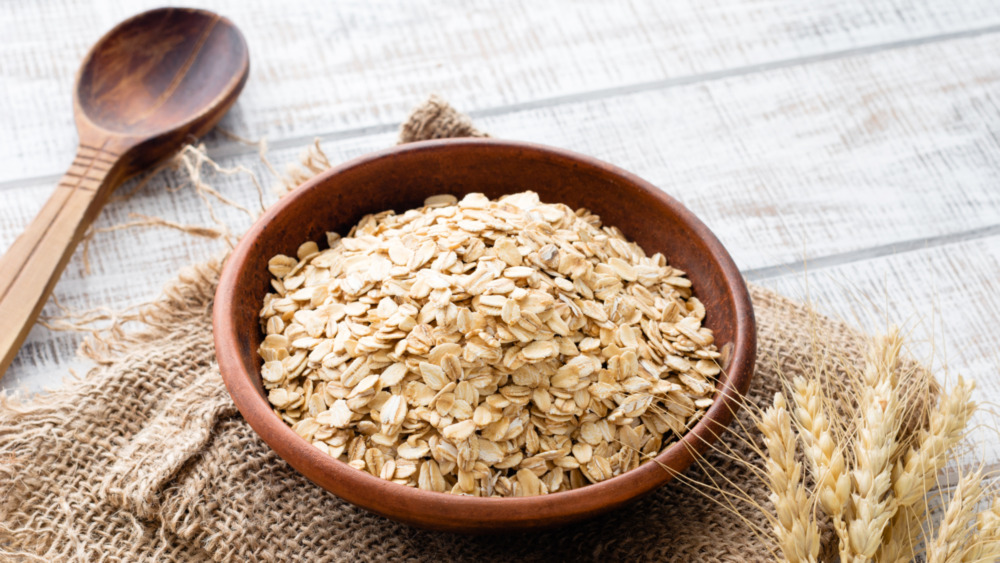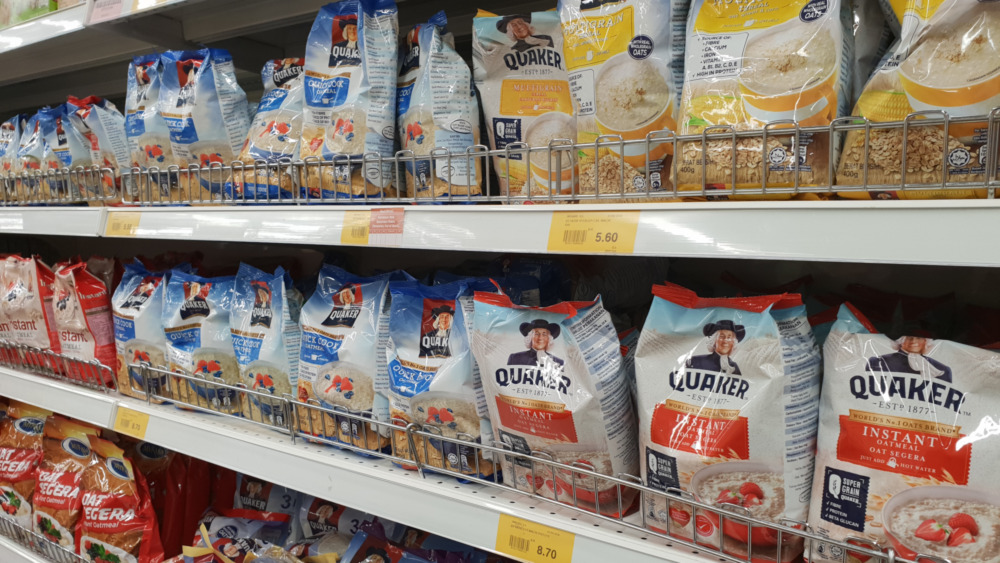Why Oats Might Not Be As Gluten-Free As You Think
If you suffer from gluten intolerance or celiac disease, the influx of gluten-free foods that have come to market in the past several years might be a relief. However, an increase in new products brandishing this label has also led to some confusion. On the one hand, it has brought to light hidden sources of gluten such as soy sauce, hot dogs, and even some medications according to Everyday Health. On the other hand, products that theoretically shouldn't even contain gluten are also alternately labeled as being free of it. Oats are a great example of this inconsistency, and the truth is important to be aware of if you are trying to adhere to a specific diet.
To give some context, gluten is a protein that gives certain grains (most notably wheat, barley, and rye) a chewy texture, according to Healthline. Though oats are theoretically exempt from containing gluten, the main issue has to do with their production. Crops of oats are often planted and harvested alongside other grains, which can result in seed contamination from the machines, dietitian Edwina Clark tells Food Network. She also notes that processing plants often work with a number of grains and don't necessarily make a point of properly cleaning equipment. Gluten-Free Watchdog has a list of manufacturers that use separate equipment for oats and designate specific fields as gluten-free. These companies follow extra measures and regularly test their products to avoid any cross-contamination and ensure their goods can be authentically labeled gluten-free.
Here's how to make safe choices with oats
Ceres Organic, a food supplier in New Zealand, notes that regulations are far stricter in that country and in Australia. Oats can only be labeled as wheat-free since they contain a gluten protein called avenin, which was shown to cause intestinal inflammation in some celiac patients, according to a study published in Australian Prescriber. However, Healthline summarized the results of various studies that looked at the effects of avenin and concluded that, while it might produce an immune response in a small percentage of celiac patients, in general oats were deemed safe to consume in marginal amounts even for those with the disease.
Since the purity of oats can vary across countries depending on gluten certification controls, it's difficult to make broad generalizations. Rachel Begun, a culinary nutritionist with celiac herself, tells Food Network that she advises choosing products that have been certified by a third party to avoid the potentially dubious practices that might occur within manufacturing companies. Besides the varying regulations, each person can react differently to the same product, so it is unlikely that all recommendations will work for everyone. If you still notice constant discomfort after eating certified gluten-free oats, maybe it's time to switch to another brand or drop the oats altogether.

